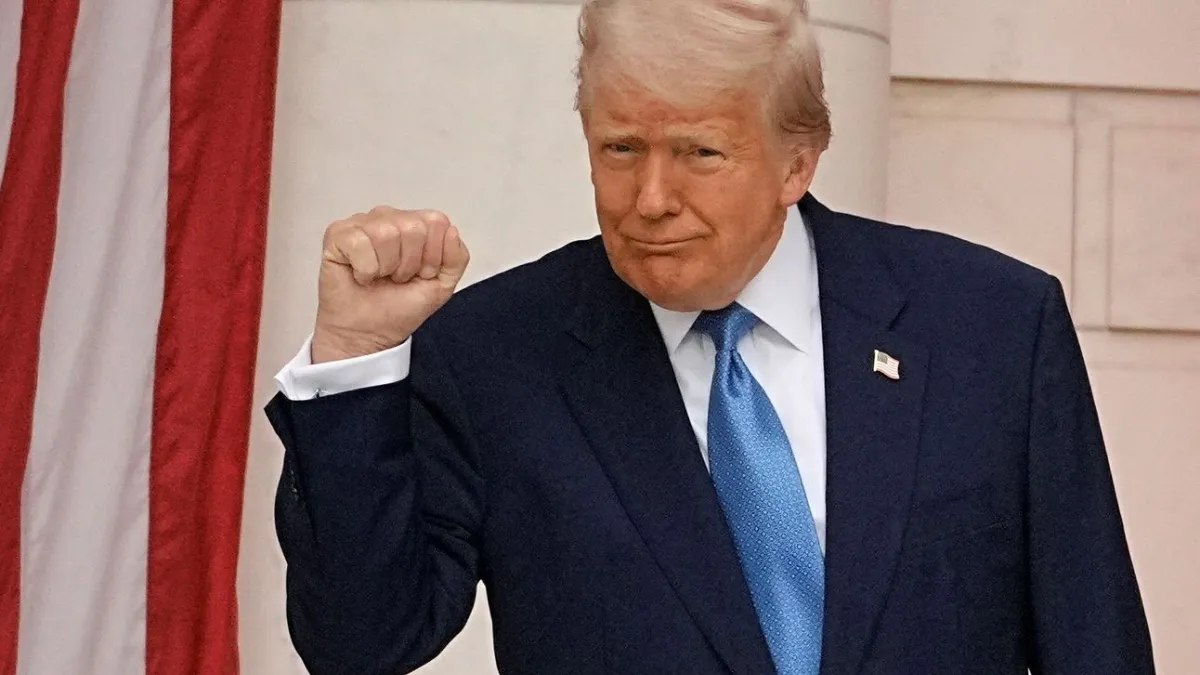
Trump Cheers Huge Decline in Imports
U.S. imports fell by a record amount in April, tumbling nearly 20% relative to March as tariffs imposed by President Trump choked off the flow of goods into the U.S. economy.
Imports of goods totaled $276.1 billion in April, a decrease of $68.4 billion from the month before, the largest one-month drop in records going back to 1992, the Census Bureau announced on Friday. Trump’s tariffs likely played a powerful role in the decline, but so too did a surge of imports in March as businesses scrambled to buy essential foreign goods ahead of the tariffs, providing a larger than usual point of comparison for the April numbers.
Exports of goods increased slightly, by $6.3 billion, resulting in a net trade deficit of $87.6 billion for the month, down from $162.3 billion in March — a decrease of 46%.
Celebrating at the White House: The president trumpeted the news for reporters in the Oval Office, playing a clip from CNBC in which the hosts discussed the trade deficit. “I don’t think I’ve ever seen the trade deficit cut in half in one month,” said CNBC’s Rick Santelli.
Trump clearly enjoyed the news and happily linked it to his tariff policies. “The tariffs are so important,” he said, adding that “without the tariffs, our nation would be in peril.”
The CNBC report also highlighted new data that showed personal income rose 0.8% in April, boosted in part by a jump in government transfers through Social Security, with nominal wages and salaries rising 0.5%.
Consumer spending slows and inflation stays tepid: Consumer spending rose just 0.1% on an inflation-adjusted basis last month, likely driven by worries about the potential fallout from rising tariffs. The savings rate increased, rising to a one-year high of 4.9% from 4.3% in March, suggesting that consumers may be preparing for a rainy day ahead.
Inflation also continued to moderate, with the personal consumption expenditures (PCE) price index edging up 0.1%. Over the last 12 months, the PCE price index is up just 2.1% — very close to the Federal Reserve’s 2.0% target rate. The 12-month PCE core inflation rate, which leaves out volatile food and fuel prices, is 2.5%, the lowest since March 2021.
Mixed signals? While Trump was happy to treat the new data as nothing less than a clear vindication of his economic policies, which aim to reduce the trade deficit, economists were a bit more cautious. Some worried that the decline in imports could signal the beginning of a period of sharply increased uncertainty, if not a broader economic slowdown.
“American spending moderated in April as US businesses pulled back significantly on imports after months of pulling forward economic activity to avoid tariff policy,” Joseph Brusuelas, chief economist at RSM, said in a research note. “This only adds to the uncertainty around the economic outlook at a time when trade policy changes on an almost daily basis.”
Olu Sonola, head of U.S. economic research at Fitch Ratings, said U.S. consumers remain resilient, but are growing more cautious due to the growing economic uncertainty. “There is clear evidence that consumers are battening down the hatches,” he said, per Reuters. “The Fed will welcome the favorable inflation reading in this report, but they are likely to interpret it as the calm before the storm.”